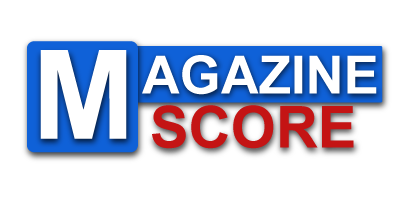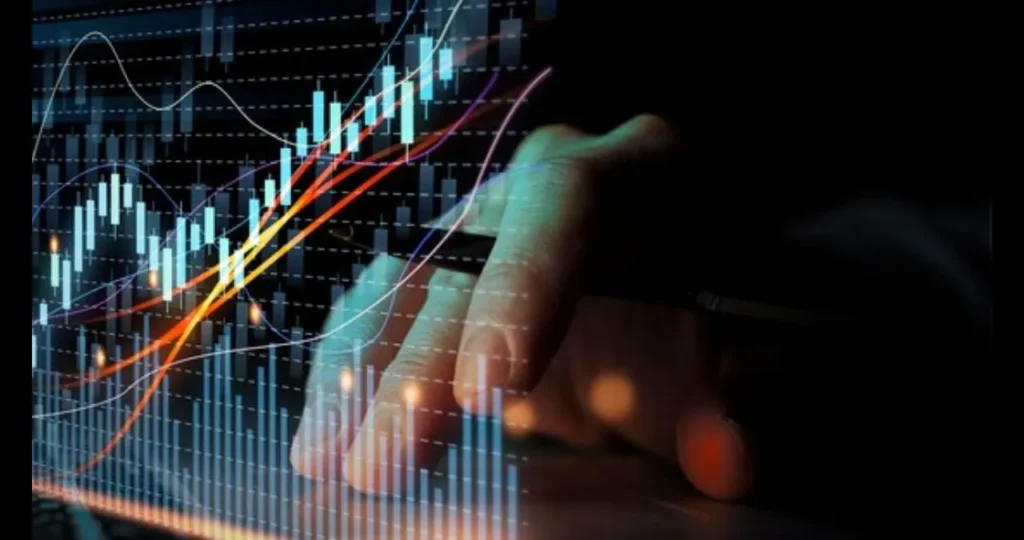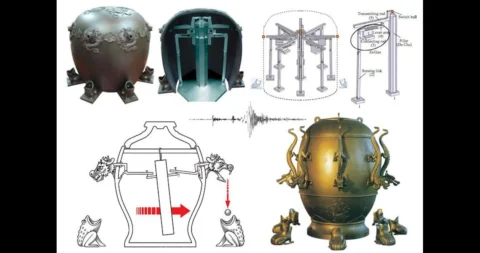Introduction GDP Deleted Scenes

Regarding GDP Deleted Scenes economic indicators, GDP (Gross Domestic Product) is often the go-to metric for understanding the health of an economy. However, within the vast world of GDP data, there exists something less talked about but equally important: GDP deleted scenes. These bits of information might be adjusted or removed over time, which can have significant implications for economic analysis and policy. In this article, we’ll delve into what these deleted scenes are, why they matter, and how they impact various facets of the economy.
Understanding GDP
Definition and Importance
GDP, or Gross Domestic Product, measures the total value of goods and services produced within a country over a specific period. It’s a crucial indicator of economic performance, reflecting overall economic health. Think of GDP as a scorecard for the economy: a rising GDP suggests a growing economy, while a declining GDP could signal economic trouble.
How GDP is Calculated
There are three primary methods for calculating GDP:
- Production Approach: Measures the value added at each stage of production.
- Income Approach: Adds up all incomes individuals and businesses earn, including wages and profits.
- Expenditure Approach: Totals all expenditures made in the economy, including consumer spending, investment, government spending, and net exports.
Each approach offers a different lens to view economic activity, but all aim to produce the same total monetary value.
Types of GDP (Nominal vs. Real GDP)
- Nominal GDP: Measures the value of economic output using current prices, not adjusting for inflation.
- Real GDP: Adjusts for inflation to GDP Deleted Scenes reflect the true value of economic output over time.
Nominal GDP is like looking at a price tag without discounts; Real GDP is like considering the actual price after all adjustments.
Deleted Scenes in Economic Context
What Are Deleted Scenes?
In economic reporting, “deleted scenes” refer to data or elements that were once included in GDP reports but have since been revised or removed. This might be due to updated information, corrections, or new methodologies. Just as a filmmaker might cut scenes from a movie, economists might adjust GDP figures to reflect economic reality better.
Why Are They Important in Economic Analysis?
Deleted scenes can provide insights into previous GDP Deleted Scenes inaccuracies or changes in economic conditions. They can help economists and policymakers understand discrepancies in data and refine future analyses. Imagine watching an updated movie version where new scenes add context to the story—similarly, these adjustments can offer a clearer picture of economic performance.
Historical Perspective
Evolution of GDP Reporting
The methods for calculating and reporting GDP Deleted Scenes have evolved significantly. Early GDP estimates were much less sophisticated compared to today’s standards. Historical revisions often reflect improved data collection and changes in economic theory, much like how filmmaking techniques have advanced over time.
Key Changes in How GDP Data is Handled
Significant changes include improvements in GDP Deleted Scenes data collection techniques, statistical method updates, and economic model shifts. These advancements ensure that GDP data remains relevant and accurate, akin to how updates in film editing technology enhance the final product.
Significance of Deleted Scenes in GDP Reports
Impact on Economic Analysis
Deleted scenes in GDP data can have substantial GDP Deleted Scenes effects on economic analysis. Revisions can alter our understanding of economic trends and forecasts, influencing everything from investment strategies to policy decisions. It’s like updating a research paper draft with new findings—such updates can reshape conclusions and recommendations.
Case Studies of Notable Deleted Scenes
A notable example is the revisions to GDP data during the 2008 financial crisis. Adjusted figures provided new insights into the recession’s severity, impacting subsequent economic policies and analyses.
Challenges with Deleted Scenes in GDP
Accuracy and Reliability
Ensuring the accuracy of deleted scenes is a significant challenge. GDP Deleted Scenes Revisions must be precise and well-documented to ensure clarity. Think of it as providing a movie’s continuity—if changes are not well explained, viewers can become confused about the storyline.
Potential Misinterpretations
Deleted scenes can be misunderstood if they are not communicated clearly, leading to incorrect conclusions about the economy. It’s crucial to provide context for these revisions to prevent misunderstanding.
Deleted Scenes and Economic Policy
Influence on Economic Policy Decisions
Revisions in GDP data can influence economic policies, such GDP Deleted Scenes as fiscal and monetary strategies. For instance, a revision indicating stronger economic growth might lead policymakers to adjust interest rates or government spending. It’s similar to a director changing the film’s direction based on audience feedback.
Examples of Policy Shifts Due to GDP Revisions
During the Eurozone crisis, revisions to GDP figures led to GDP Deleted Scenes significant policy adjustments, including changes in fiscal austerity measures and economic stimulus packages.
Technological Advances and GDP Reporting
How Technology Has Changed Data Collection
Technological advancements have revolutionized GDP GDP Deleted Scenes reporting. Improved data collection methods, real-time processing, and sophisticated statistical techniques have enhanced the accuracy and timeliness of economic data. It’s like upgrading from a film camera to digital—technology enables more precise and immediate data analysis.
Role of AI and Big Data
Artificial Intelligence (AI) and big data are increasingly GDP Deleted Scenes important in GDP reporting. AI can analyze vast data to identify trends and anomalies, while big data provides a more comprehensive view of economic activity. It’s like having a high-tech film editing suite that reveals deeper insights into the economic narrative.
Comparative Analysis: GDP vs. Other Economic Indicators
How Deleted Scenes Compare to Other Indicators
While deleted scenes are unique to GDP, other economic indicators, such as inflation rates and employment statistics, also undergo revisions. Each indicator has strengths and weaknesses, which can help provide a fuller picture of economic conditions.
Benefits and Drawbacks
GDP provides a broad measure of economic activity but doesn’t capture all aspects, such as income inequality or environmental impact. Deleted scenes can add nuance but require careful interpretation to avoid misreading the data.
Future of GDP Reporting
Emerging Trends
Future trends in GDP reporting include increased use of real-time data, improved forecasting models, and greater transparency in reporting revisions. These advancements will enhance our understanding of economic dynamics and help refine policy decisions.
Predictions for Future Changes
Economists predict that as technology and data collection methods evolve, the handling of GDP data and deleted scenes will become even more sophisticated. This evolution will likely improve the accuracy and relevance of economic reporting.
Impact on Businesses
How Deleted Scenes Affect Business Decisions
Businesses use GDP data to make strategic decisions, such as entering new markets or adjusting investment plans. Accurate and up-to-date GDP figures, including revisions, are crucial for making informed choices and navigating economic fluctuations.
Real-World Business Examples
For instance, a company might revise its expansion strategy based on updated GDP data indicating stronger economic growth. This can lead to increased investments and market opportunities.
Public Perception and Understanding
How Deleted Scenes Influence Public Opinion
The public’s understanding of GDP revisions can shape economic performance and policy opinions. Clear communication and transparency about these revisions are essential to maintaining trust and ensuring informed public discourse.
Importance of Transparency
Transparent reporting of why data is revised and how it affects economic indicators helps prevent confusion and misinterpretation. It ensures that both policymakers and the public have a clear understanding of financial conditions.
Case Studies
Detailed Analysis of Specific GDP Revisions
Examining specific cases where GDP revisions had significant impacts can provide valuable insights. For example, studying how the 2020 pandemic-related GDP revisions affected economic policies can highlight the importance of accurate data.
Lessons Learned
These case studies reveal lessons about the need for ongoing improvements in economic reporting practices and the importance of transparency in data handling.
Expert Opinions
Views from Economists and Analysts
Economists and analysts offer diverse perspectives on the significance of GDP revisions. Their insights can help contextualize the impact of deleted scenes and inform future economic analyses.
Interviews and Quotes
Interviews with experts provide a deeper understanding of how revisions affect economic interpretation and policy-making. Their views can offer valuable guidance for both analysts and policymakers.
Conclusion
In conclusion, GDP deleted scenes are more than just minor revisions; they are crucial in shaping our understanding of economic performance and policy. These deleted scenes help refine future analyses and decision-making by providing clearer insights into past economic conditions. As technology and methodologies advance, how we handle and interpret these data revisions will become increasingly sophisticated, offering a more accurate and comprehensive view of our economies.
FAQs
- What are GDP deleted scenes?
- GDP deleted scenes refer to data or elements in GDP reports that have been revised or removed over time, often due to new information or corrections.
- Why do deleted scenes matter in GDP reports?
- They are important because they can significantly alter our understanding of economic conditions, affecting analyses and policy decisions.
- How can deleted scenes impact economic policy?
- Revisions can lead to shifts in policy decisions, such as changes in interest rates or government spending, based on updated economic data.
- What challenges are associated with GDP deleted scenes?
- Challenges include ensuring accuracy, avoiding misinterpretations, and effectively communicating the reasons for revisions.
- How does technology affect GDP reporting?
- Technology enhances the accuracy GDP Deleted Scenes and timeliness of GDP reporting through improved data collection methods and advanced analytical tools like AI and big data.








